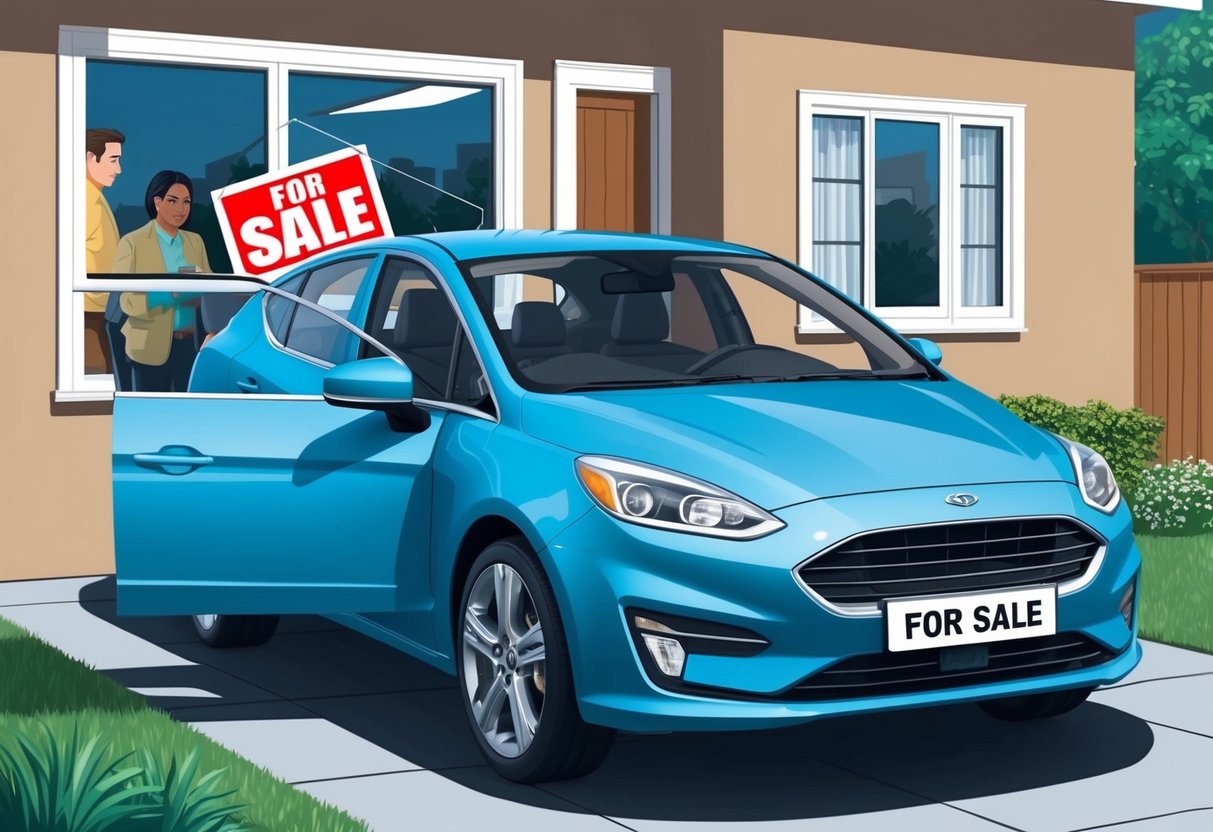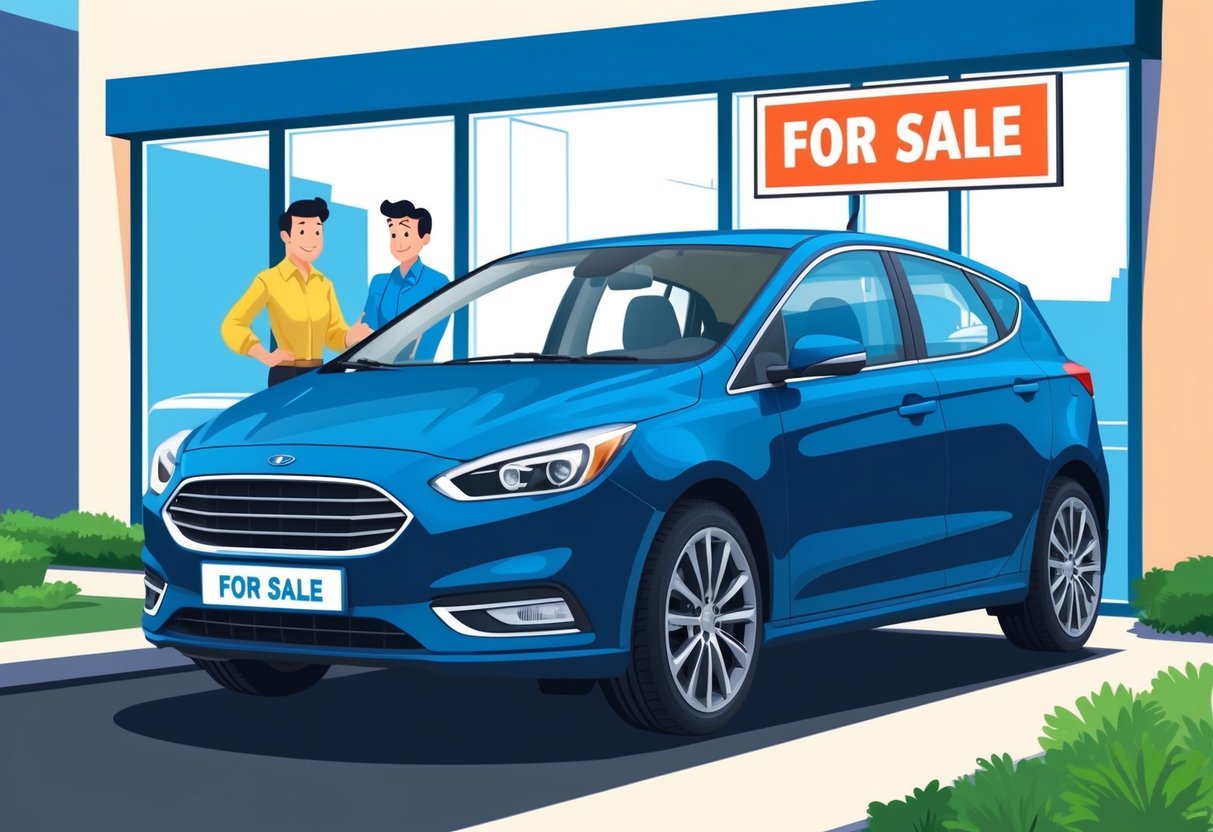
Provide Honest Answers
Transparency is a strong selling point. Disclose all known issues with the car, no matter how minor.
Buyers appreciate honesty about the car’s history, past repairs, accident reports, and current mechanical condition because it eliminates unpleasant surprises later. Present facts clearly when answering questions about mileage, ownership, service records, or accident history.
If unsure about a detail, state so rather than guessing. Providing documentation, like a recent inspection report or a vehicle history document, builds trust and supports any claims made.
Open and honest communication helps buyers feel confident in their decision, making the entire process smoother. Honesty also prevents disputes or last-minute cancellations, which can save time and effort for both parties.
Detailed disclosure in response to questions shows respect for the buyer and enhances transparency throughout the sale.
Handling Test Drives and Inspections

Selling a car quickly for cash means creating a secure, effective process for handling test drives and home inspections. Taking the right steps builds trust with potential buyers, shows professionalism, and helps avoid unnecessary risks.
Screen Potential Buyers
Before scheduling a test drive or inspection, it’s essential to evaluate each potential buyer. Sellers should request the buyer’s full name and contact information and ask a few questions to gauge their seriousness about the purchase.
Excellent screening reduces time wasted on uninterested or unreliable individuals. Ask buyers for a valid driver’s license and, in some cases, proof of insurance.
This step is a common practice recommended in guides such as Kelley Blue Book’s car selling tips, ensuring that only legitimate, qualified buyers handle the vehicle. If a buyer is hesitant to comply with reasonable screening requests, it may signal a lack of genuine interest or present a safety concern.
Use phone calls to clarify intentions before meeting in person. These conversations help confirm if buyers are knowledgeable and serious or merely browsing.
By screening buyers effectively, sellers lower the risk of arranging unnecessary home inspections or test drives with individuals who are not likely to purchase.
Ensure Safety During Test Drives
Sellers should always accompany the buyer on test drives, never allowing the car to be taken alone. Riding along protects both parties and gives the seller control during the process.
Always choose a safe, public meeting place—preferably during the day—to start and end the test drive. Prior to the drive, take a photo or make a copy of the buyer’s driver’s license.
Some sellers also request that a friend or family member be present during the meeting for extra security. Following these guidelines, which are widely recommended by reputable automotive advice sites like Cars.com, can deter theft and fraudulent activity.
If a potential buyer insists on a mechanic’s inspection, arrange for it at a trusted, neutral location rather than your home whenever possible. Bringing the vehicle to a nearby service shop means the seller remains in control and avoids unnecessary risk.
Always keep the car title, keys, and any paperwork secure until the sale is final.
Negotiating and Closing the Deal

A successful car sale depends not only on attracting buyers but also on handling negotiations strategically and finalizing payment securely. Effective negotiation tactics and safe transaction methods are essential in auto sales to ensure both parties achieve their desired action.
Negotiate with Confidence
Buyers often come prepared to negotiate, so sellers need to have all relevant information at hand. Before starting discussions, research and document recent sale prices for similar vehicles using tools like the Kelley Blue Book to determine a fair asking price.
This preparation allows for well-informed decisions and sets a realistic expectation, preventing unwanted surprises in the negotiation phase. Clear communication is vital.
Always state the asking price plainly, justify it with the condition and unique features of your car, and be open but firm on your lowest acceptable offer. Listing the service history, upgrades, and accident-free status often strengthens the position.
Staying calm and logical during discussions, without letting emotions take control, can prevent rushed choices and maximize sale value, as seen in expert advice from Kelley Blue Book and Car and Driver.
Handle Payment Securely
When it’s time to close the deal, prioritize safety. Avoid accepting personal checks and opt instead for secure payment methods such as cashier’s checks or bank transfers.
Always meet in a public place, preferably during daylight hours, and avoid sharing personal or financial details that aren’t necessary for the transaction. Draft a simple bill of sale with both parties’ information, vehicle details, and the agreed-upon price.
Confirm the funds have cleared before signing over the title or handing over the keys. Taking these steps reduces risks and helps safeguard both parties against fraud, fulfilling best practices highlighted in reputable auto sales guides like I Will Teach You To Be Rich.